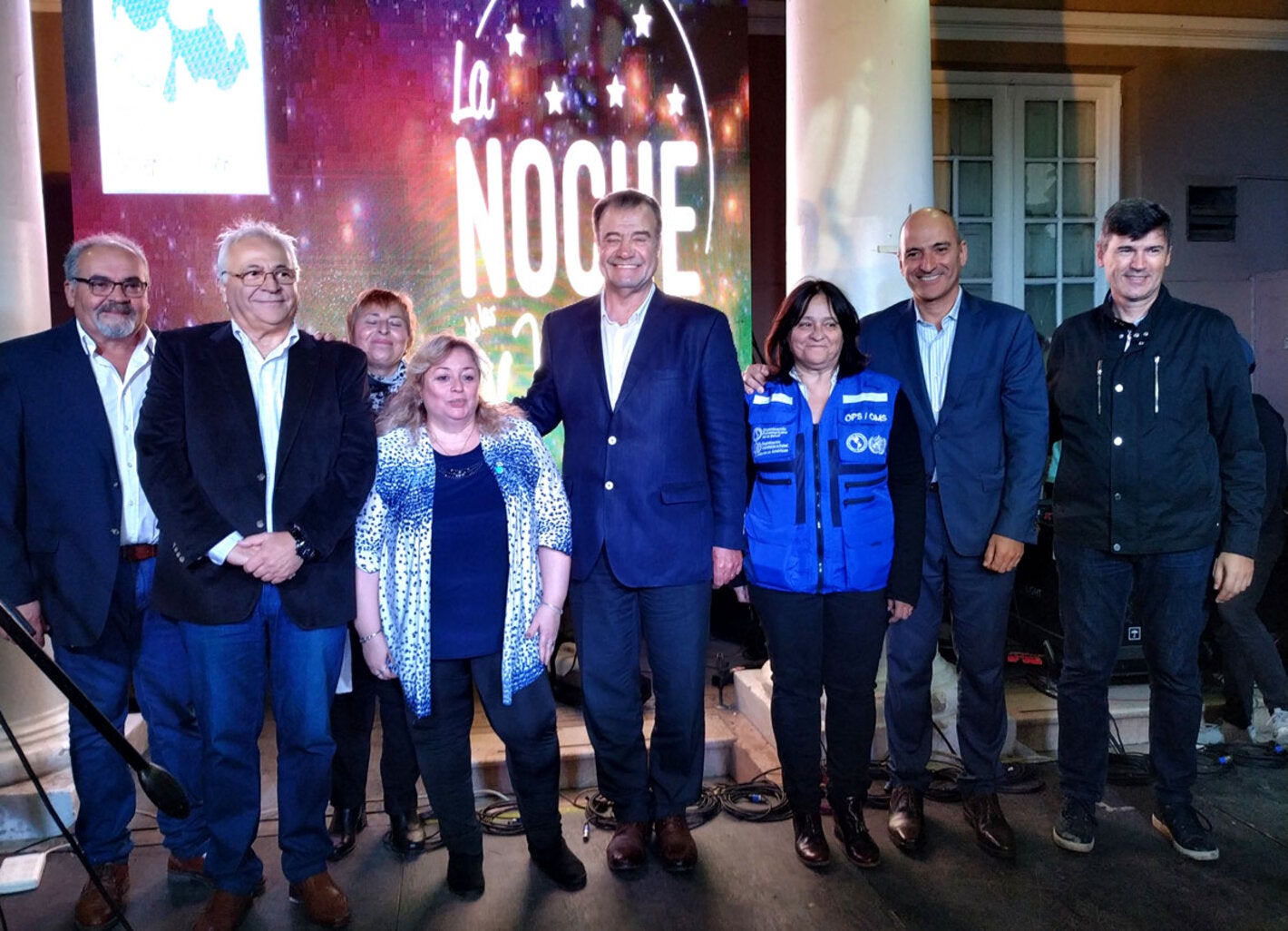During Vaccination Week in the Americas, a hospital in the city of Córdoba (central Argentina) opened its doors at night, offering a large number of families protection against various diseases.
Córdoba, Argentina, May 10, 2019 (PAHO/WHO)- “Today is a special day. We are going to go to a health party,” Sandra Cabaña told her seven children and three grandchildren on the afternoon of April 26, in the provincial city of Córdoba in central Argentina. A few hours later, the entire family was participating in Vaccination Night, along with thousands of other people protecting themselves from vaccine-preventable diseases while enjoying games and musical entertainment—all free of charge at this nontraditional event.
In its fifth consecutive year at the Niño Jesús Pediatric Hospital, the initiative is supported by the Pan American Health Organization, Regional Office for the Americas of the World Health Organization (PAHO/WHO). The hospital opened its doors at 8:00 p.m. and the event was originally scheduled to end at 2:00 a.m., but so many people came for vaccinations that service was extended past 4:30 in the morning. The number of vaccine doses administered at this event has been increasing since 2015; this year more than 7,000 doses were administered, in accordance with the national immunization schedule.
Vaccination Night was held during Vaccination Week in the Americas (April 20-27) under the slogan “Protect your community. Do your part.” PAHO has been promoting this initiative since 2003 to highlight the benefits of vaccines and to save lives.
During Vaccination Week this year, 45 countries and territories of the Americas actively participated by reaching out to their populations with vaccines against measles, poliomyelitis, influenza, and other diseases.This year’s overall target was to immunize 70 million people against vaccine-preventable diseases.


Vaccination Night Begins
At 8 p.m., in an atmosphere of great anticipation, about 70 vaccinators from different hospitals and health centers in the province of Córdoba were introduced as “tonight’s heroes.” They were greeted with a round of applause, then people waited their turn to be vaccinated in the tents set up at the hospital entrance.
Volunteer physical education teachers from the Central Córdoba Athletic Institute (one of the largest social and sports clubs in the city) and from the Red Cross of Argentina, entertained the children with educational games, while different musical groups set the rhythm for the night, to the delight of the adults.
During the formal opening ceremony, hospital director Silvia Ferreyra called for people to “keep spreading the word that vaccines are safe and save lives.” She was pleased to note that this initiative in Córdoba’s children’s hospital “has been growing bigger every year.”
The ceremony was led by the Minister of Health of the province of Córdoba, Francisco Fortuna. Miriam Burgos, Assistant Secretary for Communicable and Vaccine-preventable Disease Prevention and Control (national Ministry of Health) also participated, as did Cristian Biscayart, director of Vaccine-preventable Disease Control at the Ministry, and Mirta Magariños, PAHO/WHO vaccine consultant in Argentina.
In the long line of participants, the Cabañas family was visibly happy to be back at a hospital they consider their “second home.” “We all visit the pediatric hospital: my husband Ernesto and myself, and my children Yésica, Eliana, Karen, Julia, Carhué, Guadalupe, and Santino, as well as my grandchildren Genaro, Oriana, and Ezequiel,” said Sandra. She added that “this is a night that many people look forward to because the entire family can be vaccinated when they don’t have other things to do.”
Néstor works as taxi driver in Córdoba, the second largest city in Argentina, and Sandra is a homemaker. The couple and their grandchild, Ezequiel, all received the flu vaccine. “My husband is over 65, Ezequiel is under 2; and my doctor prescribed it to me because I am asthmatic,” she said.
Throughout the event, the band “Bautismo de Fuego” from the Military Aviation School played songs from different children’s movies. Young people dressed as superheroes surprised the children, who were thrilled at the chance to have their pictures taken with their idols.
In addition to administering vaccines to people of all ages, one station offered rapid tests for HIV and syphilis.




